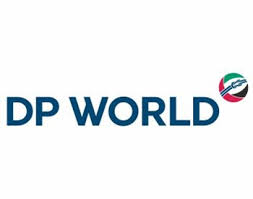More Egyptian Firms Adopt Tech For Resilience Amidst 2024 Business Forecast
Font size
New research supported by DP World and led by Economist Impact reveals that despite a challenging 2023 and growing concerns about geo-political events leading to economic challenges, Egyptian businesses are optimistic for 2024.
The fourth edition of the Trade in Transition study highlights an increased adoption of technology by businesses, along with agile trade strategies. The study captures the perspectives of trade experts and senior executives globally, including those in Egypt.
With concerns related to heightened inflation and interest rates and a downturn in key markets, businesses in Egypt are actively reconsidering risks by adopting ‘friendshoring’ strategies, switching to suppliers in countries that are more economically and politically aligned, expansion into new markets to grow exports, and setting up dual sourcing.
The survey found that 28% of Egyptian executives will adopt technologies to improve supply chain efficiency and promote agility, when asked to assess the future of global trade. Tech is also one of the main sources of business optimism.
Almost half of the executives (48%) ackowledged that their enterprises embraced AI in 2023 to revolutionise at least one aspect of their supply chain operations, with a further 20% planning to integrate it in 2024. Egyptian executives are also looking into advanced automation (33%) and blockchain technology (28%) to enhance traceability, security and data protection.

Consolidation is top of mind for Egyptian businesses, driven by a desire to reduce supply disruptions, as businesses grapple with the trade-offs between diversification and control, and risk management. 34% are employing ‘friendshoring’ to shape trade and supply chain operations whilst 31% are establishing parallel supply chains to service different markets. Additionally, almost a third of businesses are opting for fewer suppliers.
As the economy diversifies into more sectors and establishing Egypt as a regional manufacturing hub in Africa, 28% of executives believe expansion into new markets will be the primary growth driver of exports. Europe (37%) and North America (34%) were the regions poised to contribute the most to export revenues in 2024. Increases in output levels driven by technological upgrades (35%) are expected to also support a rise in import value.
Whilst business executives are cautiously optimistic, they face significant challenges in exporting and importing due to transport expenses, shortages of vital production inputs, concerns about rising inflation and economic unpredictability, as well as uncertainties around tariffs, and political instability in key markets.
Rizwan Soomar, CEO & Managing Director, North Africa & Indian Subcontinent DP World, said: “While mindful of the current economic and geopolitical challenges, we share in the optimism expressed by executives surveyed in Egypt, as they look to build resilience in their supply chains through technology and seek new markets for growth.
These findings are also aligned with what DP World is doing in Egypt, with the implementation of technology to help solve the challenges businesses face, and support their need for resilient supply chains. For example, at the Port of Ain Sokhna, our technology has enabled us to improve truck turnaround times by 35%, and vessel productivity by 16%. We’ve also implemented multi-channel payment solutions, and self service applications for customers to access live and accurate data from anywhere at any time, giving them more control and visibility over their cargo, amongst other benefits. Together with our development of end to end logistics solutions in Egypt, underpinned by DP World’s CARGOES suite of technology platforms, our aim is to build resilient supply chain solutions that enable businesses to navigate the challenges of trade seamlessly and efficiently.”













